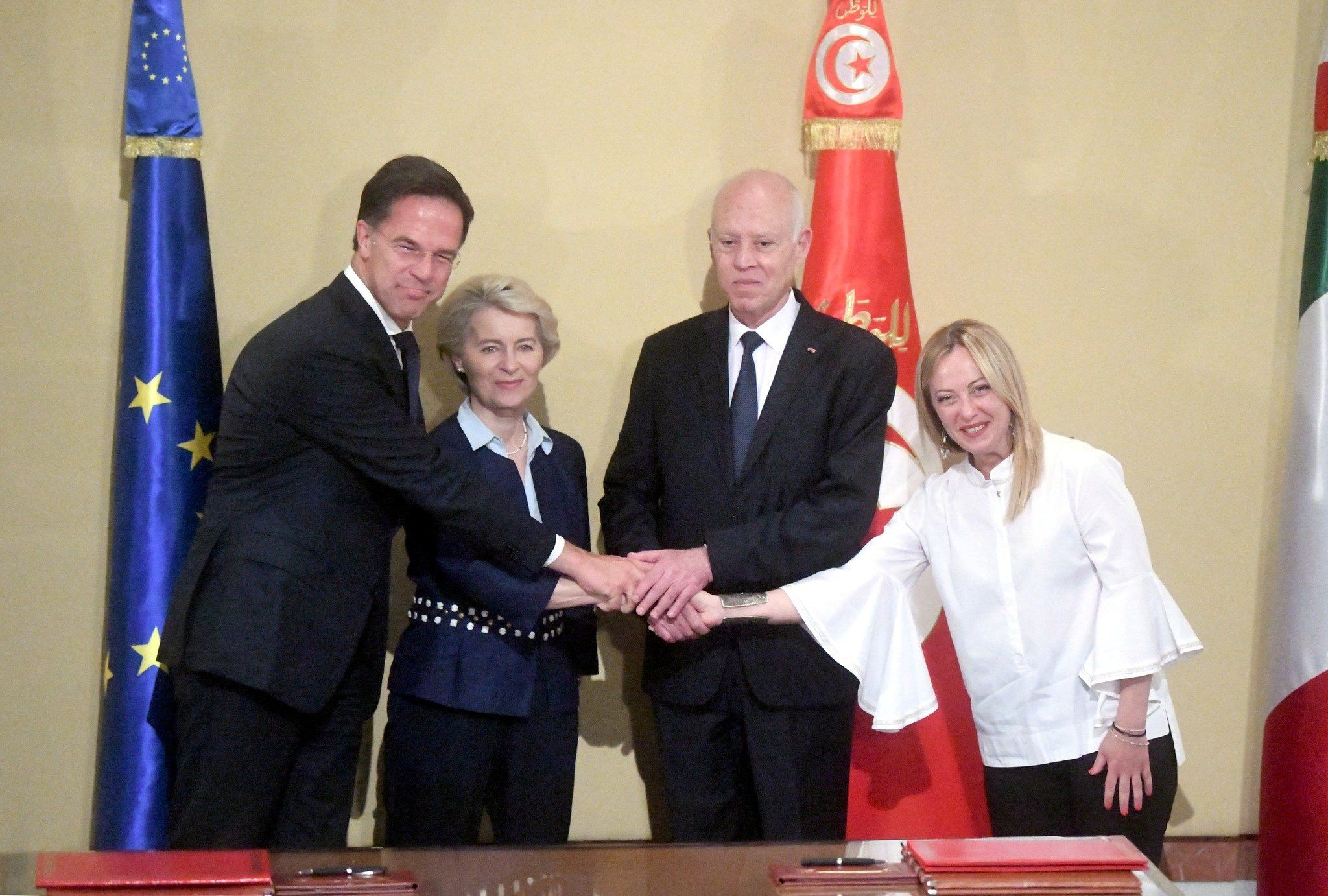The EU and Tunisia signed a deal on Sunday to curb irregular Europe-bound migration and boost economic investment in the North African country. The goal: To get Tunis – often the last stop for asylum-seekers traveling to Europe from Africa and elsewhere – to tighten border controls, limit the flow of migrants via the Mediterranean Sea, and clamp down on human smuggling.
The EU has been tightening its migration policies since over one million refugees, mainly from Syria, arrived between 2015 and 2016. Millions more Ukrainian refugees have arrived in the EU this past year, further increasing the pressure to limit migration.
What the EU wants? For Tunisia to act as its border patrol and migrant reception center, making Tunisia a “safe third party” where migrants can be sent back to before being deported back to their home countries. The UK has a similar deal with Rwanda.
Migration has become increasingly contentious in the EU, especially since a deadly shipwreck killed 600 migrants last month. Soon after, Dutch PM Mark Rutte chose to step down rather than relax strict immigration policy, a move seen as a reflection of the potency of Europe’s rising anti-immigration sentiment.
What the EU actually gets? Tunisia will bolster its border patrol, but it’s drawing the line at being a safe third-party country for migrants generally – meaning Tunis rejects the UK-Rwanda model. “Tunisia should receive anyone who has left its territory illegally provided they haven't reached the European shores,” says Eurasia Group’s Tunisian expert Omar Monieb. Tunisia will only receive non-Tunisian migrants if the traffickers' boats are stopped and diverted back to Tunisia while still en route.
Might Tunis change its tune and accept non-Tunisian immigrants in the future? Monieb says it’s possible, but such a move “is unlikely to be public and might be something Tunisia could agree to unofficially or individually with Italy as it is the country most concerned.”
What’s in it for Tunisia? A whole lotta cash, which it desperately needs to support its collapsing economy, which has been in decline since 2002 and where inflation currently hovers around 8%. As part of the deal, the EU has pledged $118 million for sea patrol equipment, training, and tech support.
Some of this will also be used to help return migrants who are willing to go back to their native countries. Racist rhetoric from authorities is already a problem, leading to mistreatment of migrants. Police recently rounded up hundreds of migrants and left them in the desert of Libya without food or water, for example, so some fear that paying Tunisia to ramp up its migration-control efforts will lead to more abuse.
“This deal will increase tensions already on the rise between sub-Saharan migrants and some Tunisians as the authorities continue their campaign against them,” says Monieb.
What this means for Africa-Europe migration efforts. While the deal will likely alleviate the number of migrants coming from Tunisia, it will do nothing to curb the flow from other routes and countries.
The deal also sets a new precedent of the EU financially rewarding an African government for curbing migration – a trend that is likely to take off as the bloc faces growing pressure at home to curb migration and as countries with large numbers of migrants begin demanding similar treatment.
